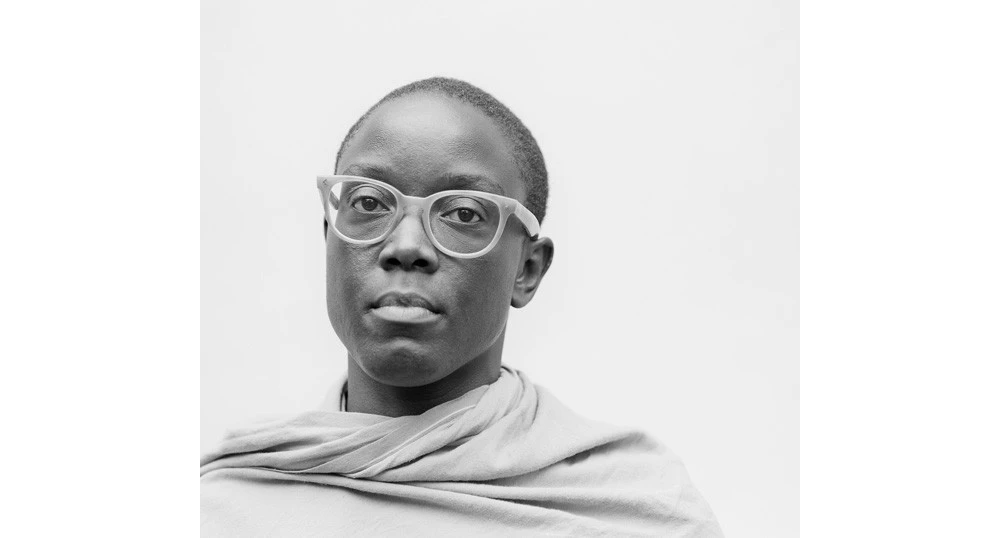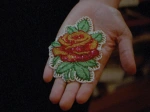
Emma Wolukau-Wanambwa, an artist whose research on the legacies of colonialism in post-independence Africa brought her a growing international following, died at 46 on January 3. Her family said that the cause was a degenerative illness that she had been battling for years.
In their announcement of her passing, her family said that Wolukau-Wanambwa was “serenaded on her way by a chorus of voices and an upswelling of love and affection.”
Working across a number of mediums, Wolukau-Wanambwa analyzed how European colonialism continues to impact African countries today, most notably Uganda, where she was based for several years. Wolukau-Wanambwa, who worked in London for much of her career, was one of a number of artists who have in recent years undertaken research that involves delving deep into archives and elucidating histories that had been made invisible, whether because documentation has been lost or because those in power chose not to archive them.
But Wolukau-Wanambwa’s work was differentiated by her passion for the material she took up and by her firm belief in the power of education, particularly in Africa.
Wolukau-Wanambwa’s photography, videos, research, and other, less definable work had brought her to some of the world’s top recurring art shows, including last year’s edition of Documenta, where she participated as a member of the group Another Roadmap Art Collective. That group, which was founded in Uganda in 2015, aims to cultivate forms of artistic education in Africa.
“I agree that it is ambitious to attempt to decolonize artistic education,” she said in a 2015 interview. “But the scale of the challenge does not mean that it is not worth the attempt. Far from it: colonial power relations, and, in particular, the subordinate mentality that it, as a system, sought to [instill] in Africans, continues to impact decisively on relations of power, and on concepts of knowledge and value in ways that are perilously and generationally debilitating for far too many people on this continent.”
The most widely seen works by Wolukau-Wanambwa were moving-image pieces that featured overlays of text on imagery related to colonialism in Africa. Promised Lands (2015), which featured in the 2018 Berlin Biennale, contains a long take of a sunset with words like “NO THEATRE” periodically superimposed on it. On its audio is the sound of Wolukau-Wanambwa and her uncle Patrick, as well as spoken text by Theodor Hertzka, an Austrian economist who, during the 19th century, attempted to establish a utopian settlement for Europeans in East Africa.
“I don’t actually describe myself as a filmmaker—I’m someone who does things with video from time to time,” she told Art in America during a 2022 roundtable about anticolonial filmmaking. She had initially sought to make a work “in the tradition of documentary” about the Uganda Protectorate, the place where her parents were born, and then diverged from it.
Other works focused on the empty graves of Polish people who emigrated to the Uganda Protectorate; “La Croisière Noire,” a 1924–25 initiative led by the founder of automotive company Citroën that involved driving off-road vehicles across French colonies in Africa, from Algeria to Madagascar; and the life and work of Amy Ashwood Garvey, a Jamaican activist who became involved in the Pan-Africanist movement.
Emma Wolukau-Wanambwa was born in 1976 in Glasgow. She initially went to college to study literature with the goal of directing plays, and upon graduation, she received an apprenticeship with the Royal Shakespeare Company. Her plans suddenly changed.
“There followed a few years ‘in the wilderness,’ so to speak, then eventually I began to make what I later discovered was ‘contemporary art,’” she told Contemporary And.
Still, her contemporary art was very different from the traditional kind, with a big emphasis on the kind of research more frequently taken up by historians and archivists. When she received an M.A. at London’s Slade Schoolof FineArt in 2008, her dissertation was a project that involved looking at documentation for World War II memorials in the British capital, at the time an under-researched topic.
Wolukau-Wanambwa’s work appeared at venues such as SAVVY Contemporary and the Haus der Kulturen der Welt in Berlin, the Serpentine Galleries in London, the National Gallery of Zimbabwe in Harare, and the Kampala Contemporary Art Festival in Uganda.
Across her work, she made a habit of telling new narratives.
“I think storytelling is essential in all sorts of contexts,” she said in the A.i.A. interview. “We live by stories, and the ways we narrativize our experience of the world matter.”

